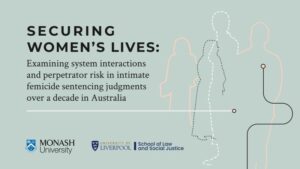Recently proposed 9% hikes for rent stabilized apartments stoke panic as residents call on Eric Adams to roll it back
At 64, Chen Ren Ping has lived in New York City’s Chinatown neighborhood for more than 20 years.
But after a back injury forced him to retire from construction work in 2018, Chen can only afford rent if he works multiple part-time jobs – and that’s with his unit being rent stabilized.
“Once I pay the rent, life is very hard,” Chen said, through a translator.
Recently proposed rent increases of up to 9% prompted Chen to join a coalition protesters calling on New York City’s mayor, Eric Adams, to roll back rising rent.
“A lot of us can’t pay the rent and we can’t even buy food,” Chen said at a rally organized by the Rent Justice Coalition group at New York’s city hall park on Thursday.
For the millions of New Yorkers living in rent stabilized buildings, many of whom are still financially recovering from disruptions caused by the Covid-19 pandemic, recently proposed rent hikes are stoking panic and widespread pushback throughout the city.
New York’s Rent Guidelines Board (RGB), a nine-person, mayor-appointed board, votes annually on how much landlords can raise the rent of the city’s more than 900,000 rent stabilized units.
For the past five years, the RGB has voted – at most – for a rent increase of 1.5% for one-year leases and 2% for two-year contracts, increases that New Yorkers say have already put added pressure on tight-squeezed paychecks.
But, staff of this year’s RGB, with three new members appointed by Adams, have proposed hikes of 4.5% for one-year leases and up to 9% for two-year leases. Elected officials and tenants argue the added costs will displace a staggering number of residents.
“Is the mayor’s goal to have hundreds of thousands of homeless people? Because if that’s his goal, he’s heading in the right direction,” said Pilar DeJesus, a senior advocacy coordinator at the organization Take Root Justice.
DeJesus, who spoke at Thursday’s protest, said that is because many tenants are still grappling with income loss and financial stress amid the pandemic.
“First, they were worrying about dying. Now they gotta worry about being homeless and dying on the street,” DeJesus said, adding that increased rent will exacerbate crime and mental health problems in the city.
Julius P Bennett, a Bronx tenant who also spoke at Thursday’s rally, seconded the concerns of Chen and DeJesus.Advertisementhttps://ddcca264f5f04814053b32e46f4a5aa8.safeframe.googlesyndication.com/safeframe/1-0-38/html/container.html
Bennett, whose income primarily comes from his pension and social security, said that he and other tenants in his building would have to move amid proposed rent increases.
Bennett also said past rent increases have not prevented his building from falling into disrepair.
“Nine per cent would be exorbitant,” said Bennett, who leads his building’s tenant union.
Chi Ossé, a city council member who spoke at the protest, said that constituents in his district, which includes the Bedford-Stuyvesant neighborhood and parts of Crown Heights, often report excessive rent increases that Ossé believes are unlawful.
“We’ve been getting calls from tenants saying that their landlord was gonna increase the rent by $700 by the time May 1 comes around and we’re hearing even crazier prices,” said Ossé, adding that Bedford-Stuyvesant lost the most amount of Black residents out of any New York City neighborhood .
Bennett, DeJesus and others who spoke at the rally also noted that tenants facing eviction often do not receive the competent counsel to which they are legally entitled. That would be only be worsened in light of higher rent and possible wave of new evictions.
“Is that because we are the poor? You don’t have to provide for us, whatever the law says?” Bennett said.
In response to a request for comment on how proposed rent increases would impact New Yorkers, the mayor’s office forwarded an answer Adams had given at a previous press conference: the RGB would only approve a proposal that wouldn’t increase evictions.
Adams also added that rent increases were meant to support small-building landlords who were falling behind on their bills because the pandemic halted payments.
“We don’t want to aggravate the eviction process, but we also got to look at small property owners,” Adams said at a 21 April press conference. “And sometimes when we think about landlords, we think about the mega guys … but these small mom and pops have been decimated.”
But a 2018 analysis from the non-profit JustFix.nyc calls into question who the suggested increases would serve. The majority of rent-regulated apartments are owned by large landlords, defined as those who own more than 20 buildings, the analysis found.
Adams’s office also noted that board members wouldn’t make a final decision until June and weren’t bound by their staff’s recommendations. But many have questioned if newly appointed members of Adams’s RGB, which include both a landlord lawyer and an avowed skeptic of rent control, would weigh tenants’ concerns over rent hikes.
“You need to understand the impact on working-class people,” Chen said.
This article was amended on 2 May 2022 to correct the spelling of Chen Ren Ping’s name and to use his surname at subsequent mentions.




